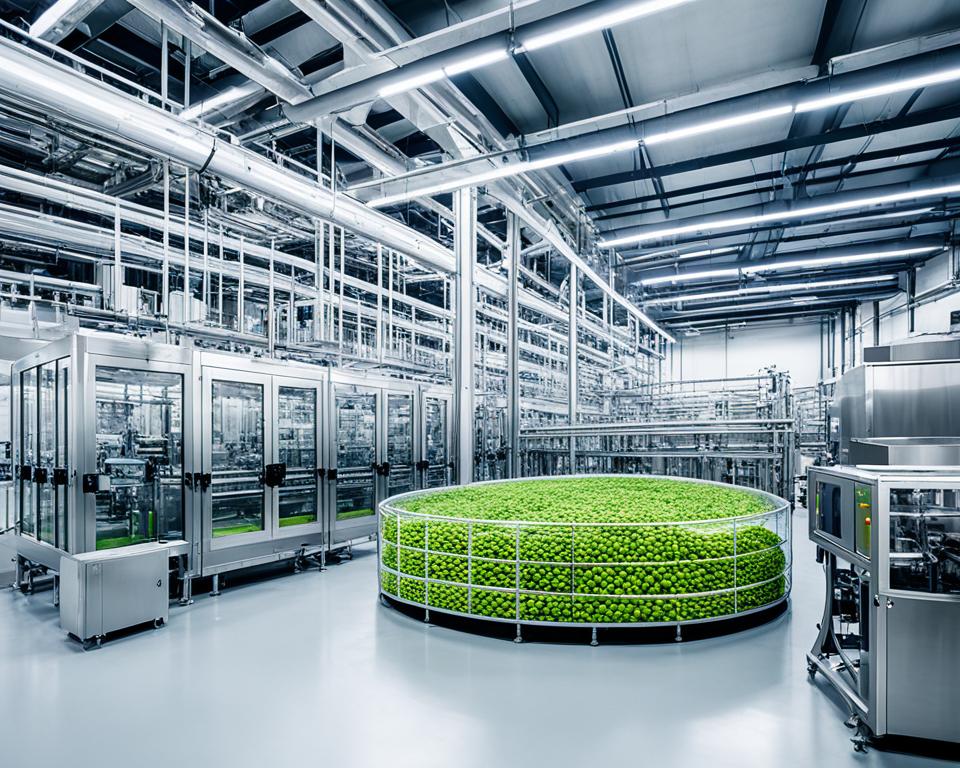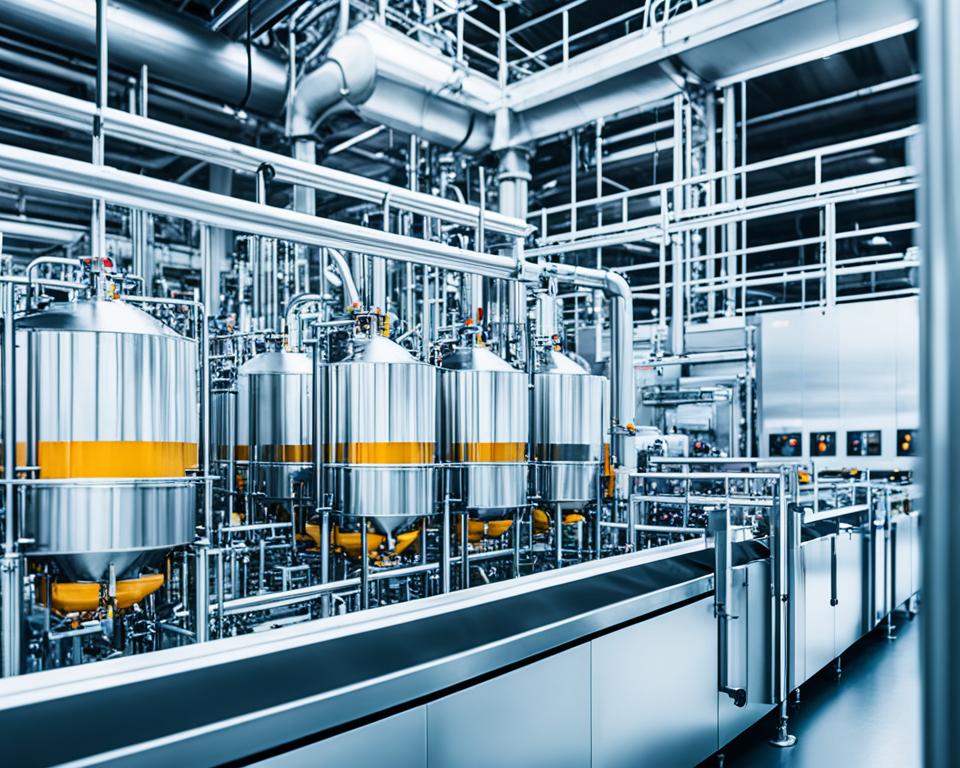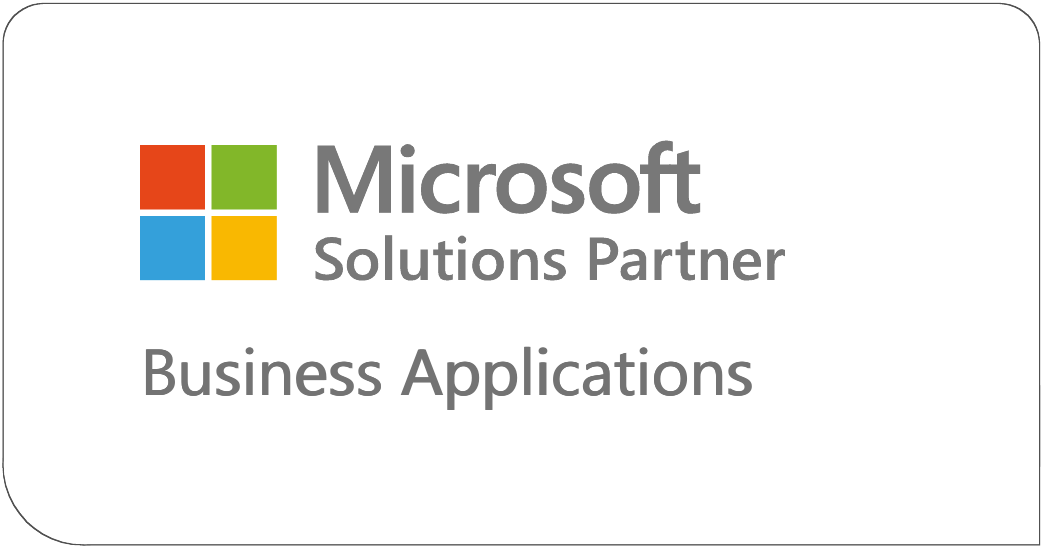|IMPERIUM DYNAMICS
Food recalls cost the industry about $7.2 million on
average each year. This shows how crucial it is to have
precise operations. Today's top ERP software for food
manufacturing helps with this. It ensures quality,
follows rules, and works efficiently.
Behind every delicious bite of food are strict
processes. These processes are made better and more
efficient by food ERP systems. In the fast-changing erp
for food industry, using advanced technology is a must
to stay ahead.
Leaders in the food manufacturing world are choosing
strong ERP solutions. These solutions help them deal
with production challenges. Real examples show that
using advanced food erp platforms helps improve
workflow, food safety, and productivity. This has set a
new standard for success in this field.

Key Takeaways
- The high cost of food recalls shows the need for precise food ERP systems.
- Food manufacturers are adopting ERP solutions to meet complex challenges.
- ERP technology is crucial for ensuring quality and compliance in the food industry.
- Advanced ERP systems are setting new standards for operational efficiency.
- Success in the food sector is increasingly linked to the utilization of ERP software.
Essential Features of Food Manufacturing Software
Food manufacturing software is key for handling the food industry's complex tasks. It has important features that boost efficiency and follow rules. Let's look at three must-have parts for food manufacturing software.
Inventory Management for Food Manufacturing
Inventory management for food manufacturing is vital. It keeps stock levels right, which is key for perishable items and cutting waste. This system uses data analytics to predict demand and adjust stock, reducing overstocking or running out.
Quality Control Software for Food Production
Quality control software for food production
keeps food quality and safety top-notch. It tracks batch
data and test results to catch quality problems early.
This is key for keeping brands trusted by consumers.
It also helps improve production lines with detailed
reports.
Food Safety Compliance Software
Food safety rules are getting tougher, making
food safety compliance software
crucial. It helps track and manage compliance data
easily, making audits easier. This software automates
tasks like hazard analysis and monitoring processing
conditions.
This ensures products are made safely and consistently.
Benefits of Implementing an ERP Food Software
Using a food industry ERP solution can greatly improve your business and make things run smoother. Here are the main benefits:
- Better coordination of production planning for food manufacturers makes things run smoother.
- Enhanced traceability in the supply chain thanks to strong food ERP software features.
- Improved compliance with changing food safety laws.
- More productivity and less waste, helping your business be more sustainable.
Big companies that use this tech say they save money and make customers happier. This is because they make better products and deliver them on time.
| Aspect | Before ERP Implementation | After ERP Implementation |
|---|---|---|
| Production Efficiency | Low | High |
| Error Rate | High | Low |
| Compliance with Regulations | Inconsistent | Excellent |
| Customer Satisfaction | Variable | Improved |
The food ERP software makes everyday tasks easier and gives important data for better decisions. This makes food industry ERP solutions key for production planning for food manufacturers.
Food Manufacturing Software
In the fast-paced food industry, specialized software like food ERP is changing how businesses work. It covers everything from getting raw materials to sending out products. Now, using food processing software in supply chain management is key for being sustainable and efficient.
Role in Supply Chain Management for the Food Industry
Food manufacturing software is crucial for making supply chains clear and well-coordinated. With food ERP, companies can see what's in stock, where orders are, and when things will arrive. This helps make things run smoother, cuts down on delays, and makes sure products are up to standard.
Improving Production Planning for Food Manufacturers
Food manufacturing software also helps with planning production better. It has tools for predicting and scheduling production, which helps avoid waste and quickly adapt to changes in the market. This is key to staying competitive in a market that changes fast.
Using food processing software leads to better use of resources, more efficient operations, and lower costs. By keeping an eye on production and using predictive analytics, food makers can make smart choices. This leads to the best possible results.
| Feature | Benefits in Supply Chain Management | Benefits in Production Planning |
|---|---|---|
| Real-time Inventory Tracking | Minimizes overstock and stockouts | Ensures materials are available for planned production schedules |
| Demand Forecasting Tools | Adjusts procurement based on market trends | Aligns production levels with anticipated sales |
| Quality Control Modules | Maintains compliance with food safety standards | Reduces instances of product recalls and reputational risk |

Choosing the Right Food Industry ERP Solution
When looking for an ERP solution for the food and beverage industry, it's key to make sure it fits your business needs. You need to consider things like scalability, customization, and how well it integrates with other systems. Picking the right erp food software is a big decision that can really help your business grow and work better.

Customization and Scalability in ERP for Food and
Beverage Industry
When picking an ERP system, think about how it can change to fit your business. The best erp for food and beverage industry lets you customize it to fit your unique processes. It should also grow with your business, so you don't have to keep changing systems or spend a lot on updates.
Integration Capabilities of ERP Systems
The way an ERP system works with your other IT systems is very important. A good ERP should work well with systems like CRM and SCM. This makes sure data is the same everywhere and helps everyone make better decisions faster.
Vendor Support and Community
How much support you get from the vendor and if there's a strong user community is also key. Good support can make starting and running the ERP smoother. Plus, a strong community can offer advice and help based on what other users have learned, which is really useful for fixing problems and getting the most out of your erp food software.
Conclusion
In this deep dive into ERP systems for the food industry, we've seen how crucial food ERP solutions are today. They handle inventory, quality control, and safety with care. This makes them key for efficient food production management.
These systems blend operational skill with tech innovation. This leads to better traceability, less waste, and quicker responses to market needs.
We talked about the big perks of erp software benefits. They lay a solid base for growth and sustainability in the competitive food manufacturing world. We learned how important it is to find solutions that fit your business needs.
Using these advanced software can boost the food production process. It also helps manufacturers meet safety and customer satisfaction standards.
At the end, it's clear that strong ERP systems are a must for food manufacturers to stay ahead. Choosing the right ERP software can change the game for efficiency and profits. Food manufacturers should look into these technologies to stay strong in the market.
For ongoing growth and top performance, investing in the best ERP solutions is key. It's a vital step for any food manufacturer aiming to succeed in the future.
FAQs
What Makes ERP Software Essential for the Food Manufacturing Industry?
ERP software is key for food manufacturing. It boosts efficiency, ensures compliance, and streamlines operations. It integrates various business processes. This helps manufacturers deal with challenges like managing perishable items, quality control, and safety.
How Does Inventory Management in Food Manufacturing Software Impact Operations?
Inventory management is crucial in food manufacturing. It tracks and manages perishable goods accurately. This ensures the right stock levels, cuts waste, and keeps products fresh. It leads to cost savings and happy customers.
What are the Key Benefits of Quality Control Software in Food Production?
Quality control software is vital for food production. It makes sure products meet strict standards. It offers tools for real-time monitoring and analysis. This helps prevent contamination, manage recalls, and protect public health, keeping brands trusted by consumers.
Why is Food Safety Compliance Software Important?
Food safety compliance software is crucial. It helps follow rules like HACCP, FDA, and FSMA. It automates documentation and keeps detailed records for audits. It makes hazard analysis easier, ensuring high food safety levels.
How Can Implementing ERP Food Software Improve a Food Manufacturer's Productivity?
ERP food software boosts productivity by automating processes and reducing errors. It provides accurate, real-time data. This leads to better decision-making, streamlined operations, and quick responses to market demands, improving productivity.
What Role Does Food Manufacturing Software Play in Supply Chain Management?
Food manufacturing software is key in supply chain management. It ensures transparency and efficiency. It helps coordinate between suppliers, manufacturers, distributors, and retailers. This leads to better inventory tracking, lower costs, and happier customers.
What Should Food Manufacturers Consider When Choosing an ERP for the Food and Beverage Industry?
When picking an ERP for the food and beverage industry, consider its customization and scalability, integration with other software, vendor support, and user community strength. These factors affect how well the ERP meets their operational needs and growth goals.
How Does Production Planning Software Benefit Food Manufacturers?
Production planning software helps food manufacturers schedule and optimize production runs. It manages resources well and reduces waste. This leads to timely delivery of fresh products, meeting customer needs, and staying competitive.
Can ERP Systems be Integrated with Other Types of Software Used in Food Manufacturing?
Yes, ERP systems can be integrated with other software like CRM, logistics systems, and analytical tools. This interoperability creates a unified data environment. It boosts efficiency and provides deeper business insights.
What Kind of Support Can Manufacturers Expect from ERP Vendors?
Manufacturers can get comprehensive support from ERP vendors. This includes help with implementation, employee training, technical support, and updates. Many vendors also offer consultation services to optimize ERP use in the food manufacturing industry.

